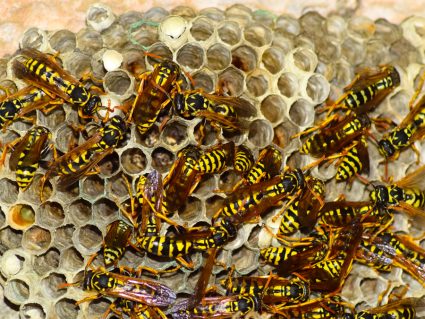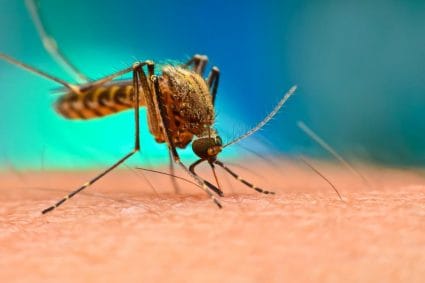
When a skunk sprays inside your house, the smell can be overwhelming, and the cleanup can be a daunting task. Skunk odor is notoriously difficult to remove, and the smell can linger for days, weeks, or even longer if not properly treated. In this comprehensive guide, we’ll explore how long it takes to get skunk smell out of the house, effective methods for removing the odor, and how you can prevent future skunk sprays.
The time it takes to get skunk smell out of the house can vary greatly depending on the severity of the spray and the methods used for odor removal. With immediate action and proper cleaning techniques, the smell can often be significantly reduced or eliminated within a few days to a week. However, in some cases where the spray is particularly strong or has deeply penetrated materials, the smell can linger for weeks or even longer.
Understanding Skunk Spray
Skunks are notorious for their foul-smelling spray, which they use as a defense mechanism against perceived threats. The primary components of skunk spray are sulfur-containing compounds known as thiols. These compounds are responsible for the characteristic foul smell. Skunk spray also contains thioacetates, which can morph into smell-producing thiols when they come into contact with water or humidity. This can happen days or longer after the skunking occurred, giving the skunk spray its staying power.
Immediate Steps to Take After a Skunk Sprays Inside Your House
The first step to take when a skunk sprays inside your house is to ventilate the area. Open all windows and doors to allow fresh air to circulate and start dissipating the odor. Remove any items that have come into direct contact with the spray, such as clothing, bedding, or rugs, and wash them as soon as possible. A solution of 1 quart of 3% hydrogen peroxide, ¼ cup of baking soda, and 1 teaspoon of liquid dish soap can be used to wash clothes and other fabrics.
How to Remove Skunk Smell From Your House
There are several effective methods for removing skunk smell from your house:
- Use Vinegar: Place bowls of vinegar in each room for 24 to 48 hours. Vinegar can absorb and neutralize the skunk odor.
- Use Baking Soda: Sprinkle baking soda around the affected area. The baking soda will absorb the skunk smell.
- Steam Cleaning: For non-launderable soft surfaces like couches, carpets, mattresses, and curtains, opt for a thorough steam cleaning.
- Bleach and Water Solution: For hard surfaces, use a 1:9 mixture of bleach and water to remove the smell. Test in a small area first to ensure the bleach doesn’t discolor or damage the surface.
- Commercial Products: Products like Nature’s Miracle Skunk Odor Remover or ZORBX Unscented Skunk Odor Remover Spray are specifically designed to eliminate skunk odor.
- Professional Help: If the odor persists, consider hiring professional services like ServiceMaster or SERVPRO.
The Effect of Skunk Spray on Different Materials
Skunk spray can affect various materials found in homes, including fabrics, wood, and carpet, in different ways due to its oily and sulfur-based composition. For fabrics, skunk spray can be removed by washing them with regular laundry detergent mixed with 1/2 cup of baking soda in hot water. When it comes to wood, the smell of skunk spray tends to dissipate over time. For carpets, the skunk smell can be particularly stubborn because it gets embedded in the carpet fibers.
Health Risks Associated with Prolonged Exposure to Skunk Odor
Prolonged exposure to skunk odor can pose some health risks, although these are generally not severe. The most common health effects associated with skunk odor exposure include nausea and vomiting, respiratory problems, eye irritation, and skin irritation. In rare instances, exposure to skunk spray has been associated with more serious health effects.
How to Prevent Future Skunk Sprays
To prevent future skunk sprays, homeowners can take several precautions. These include removing food sources that attract skunks, sealing off potential entry points to the home, installing motion-activated lights, using skunk repellents, and keeping the yard clean.
Conclusion
Removing skunk smell from your house can be a lengthy and challenging process, but with the right methods and a bit of patience, it’s possible to get rid of the odor completely. Remember, the key to successful skunk smell removal is acting quickly. The sooner you can start cleaning, the better your chances of completely removing the smell.
Frequently Asked Questions
Can I use bleach on colored fabrics to remove skunk smell?
No, bleach can discolor or damage colored fabrics. It’s better to use a mixture of hydrogen peroxide, baking soda, and liquid dish soap to wash colored fabrics that have come into contact with skunk spray.
Will the vinegar smell replace the skunk smell?
While vinegar has a strong smell, it tends to dissipate faster than skunk odor. Once the vinegar has done its job of absorbing and neutralizing the skunk smell, you can ventilate your home to get rid of the vinegar smell.
Does skunk spray cause permanent damage to furniture or carpets?
Skunk spray doesn’t typically cause permanent damage, but it can leave a lingering smell if not properly treated. For non-launderable soft surfaces like furniture and carpets, consider a thorough steam cleaning or use commercial products specifically designed to eliminate skunk odor.
How long does skunk smell last without treatment?
Without treatment, skunk smell can linger for weeks or even longer. The duration can vary depending on factors such as the amount of spray, the materials it came in contact with, and the humidity level.
Is it safe to stay in the house after a skunk spray?
While skunk odor is overwhelmingly unpleasant, it’s generally not harmful. However, prolonged exposure can cause nausea, vomiting, respiratory problems, and eye and skin irritation. If the smell is too overpowering, it might be best to leave the house until the odor has been adequately addressed.











